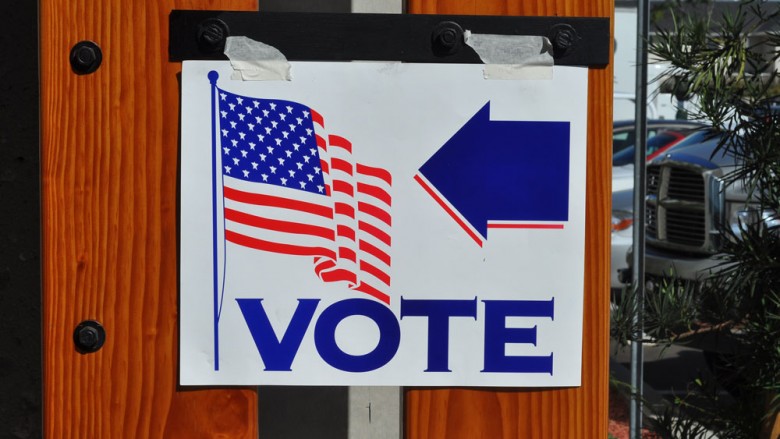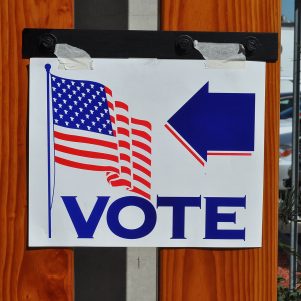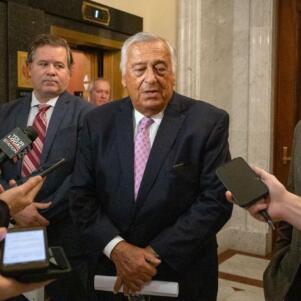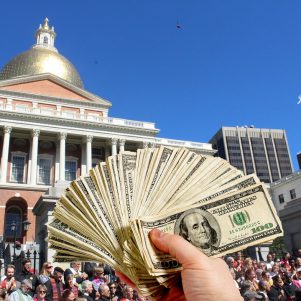National popular vote compact questioned five years later
By State House News Service | October 20, 2015, 6:15 EDT
 (Photo courtesy of Wikimedia.org)
(Photo courtesy of Wikimedia.org) STATE HOUSE — The debate over whether Massachusetts should stick with the centuries-old Electoral College system of chosing a president or continue to support a bid to pick the leader of the free world by popular vote again reared its head Monday.
In 2010, the Legislature entered into an agreement to join other states in electing the president by national popular vote. But Rep. Bradley Jones, the House minority leader, has filed a bill (H 568) to remove Massachusetts from that agreement.
National popular vote supporters say the compact — which wouldn’t kick in until states controlling more than half of the country’s electoral votes sign on — would uphold democratic principles and eliminate presidential candidates’ focus on just a handful of swing states.
Pam Wilmot, executive director of the good government group Common Cause Massachusetts, told the Joint Committee on Election Laws on Monday that the Associated Press has already identified just six states that are likely to be so-called battleground states in the 2016 presidential election.
“In short, the election is held in those states and the rest of us, like Massachusetts, are ignored,” she said. “Three quarters of the states receive no visits, no campaign dollars and no advertisements during the general election cycle.”
Wilmot said the multi-state compact aimed at ensuring the winner of the national popular vote is elected president, regardless of the Electoral College’s vote count, is “exactly the right proposal” and noted polls have shown as much as 70 percent of Democratic and Republican voters favor the idea.
But not everyone likes the idea. Jones did not testify in person on his bill, but Norwood resident Lynne Roberts spoke in support of the North Readining Republican’s move to extract Massachusetts from the compact.
“The Electoral College provided a balanced representation of the states and the people. The Electoral College prevents candidates from pandering to one region or running up their votes in one state,” Roberts said. “Direct election, as you probably are all aware, does not protect the minority.”
So far, the national popular vote agreement has been adopted by 11 states possessing 165 electoral college votes — 61 percent of the 270 electoral votes needed to activate it.
Rep. William Straus, who said he was and continues to opposed the national popular vote compact, said in written testimony that he is concerned that the compact won’t take effect “possibly for decades” and would then be sprung upon the state’s electoral system years after legislators had debated its merits.
To prevent “the specter of years of litigation that once again may leave a presidential election in the hands of the Supreme Court,” Straus filed a bill (H 613) that would require Massachusetts to pull out of the compact if it does not take effect by Jan. 1, 2018.
Affixing a sunset date to the compact, Straus said in written testimony, “merely institutes a procedural guarantee that ensures that the electoral process will represent the contemporaneous political and constitutional views of Massachusetts voters.”
— Written by Collin A. Young
Copyright State House News Service











